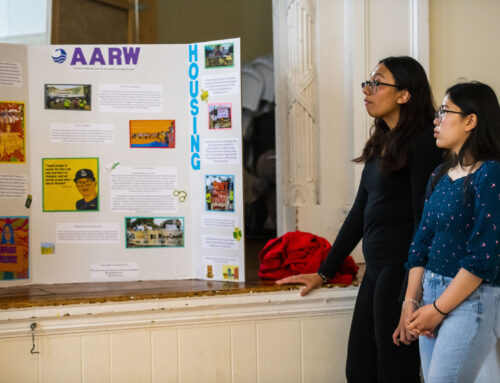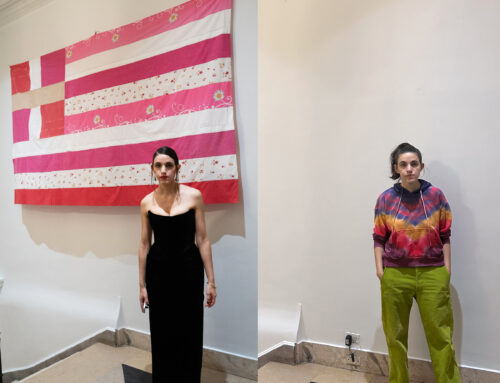Communities are inherently different. Whereas my town is home to a series of home-style restaurants located one block from each other, other communities may be marked by eccentric thrift or craft stores. The varying geography, mom-and-pop shops, and distinct services become factors that distinguish one area from the next. Yet, while one community may have a Chipotle, and another a local tex-mex restaurant, certain infrastructure is deeply entrenched in all of American society. You can count on hospitals, local law enforcement, schools, waste management, and water filtration services to be ubiquitously present in most cities and towns. These institutions don’t vary tremendously from one community to the next because they stand as a reminder of American solidarity — of the democratic rights all individuals, regardless of race, age, or gender, are naturally entitled to.
Rarely have I questioned why I’m able to retrieve clean water from the sink when I hold my glass under the faucet. I’ve never been fearful of approaching our kitchen faucet or doubtful of whether the emerging liquid would be pristine or murky. We don’t think about how we have clean water humming out of local reservoirs. Yet, we can’t live without the substance; It’s a priority. It’s a right. It’s a question of safety and wellbeing. Growing up, I’ve grappled with the meaning of “right.” On a surface level, right is the opposite of wrong; something that is true, correct, and ideal. “To do the right thing” or “act righteously” were clear directions that didn’t beg for any further explanation. The distinction between right and wrong was a visible boundary I knew not to cross. Yet, when I consider what “right” signifies on a political level, I feel like I’m thrown into a messy, unsettled territory. We have the right to vote with pride, to have privacy in our homes, to raise questions in assemblies, to access clean water, and to be cared for when sick. Rights are what we can do and what we’re entitled to. Rights make no distinction between deserving and undeserving, poor and rich, or male and female. They’re standardized — a uniform system applicable to all. But what are seen as rights are not often guaranteed, with American politicians and institutions making distinctions and giving selective access to such rights.
Healthcare is one of these disputed rights. Our health is dependent on external medical services much like it is on clean water. Though hospitals are built into the grounds of all communities, they aren’t equally accessible to all populations, especially those who are uninsured. Hospitals, once viewed as the great equalizer where patients of all backgrounds could heal and recover, are avoided by those who are uninsured and must hefty pay out-of-pocket fees for medical visits. To conquer the growing number of people without health insurance, Democratic Vice President candidate Kamala Harris has proposed a government-run Medicare-for-all health insurance plan.
Harris’s Medicare-for-all plan would treat healthcare much like the ability to vote: as a natural-born right. Currently, healthcare is a highly profitable industry. With a plethora of private insurance companies offering different rates and services, healthcare has grown into a competitive, pricey market focused primarily on the bottom line. Moreover, certain services, such as emergency room visits and dental care, are not included in many private insurance plans. Harris’s plan eliminates the variety of insurance companies and rather establishes a singular national plan funded exclusively by the federal government. This plan would be accessible to all citizens, regardless of income level or job type. Whereas Medicare is currently available to senior citizens over the age of sixty-five, Medicare-for-all would not only expand the age range of Medicare beneficiaries but moreover offer dental and mental health coverage.
Many like the privatized health insurance system we currently have in place. Many fear losing the system we have already established. But, during a time where healthcare is one of the most highly-valued and needed services, there is just as strong of a push towards a more just, equitable, and accessible system.
Though Medicare-for-all is a plan, it’s a goal that will move the United States towards a more inclusive, universal health insurance coverage system in the future. Currently, Americans spend more on healthcare per person than any other developed nation; despite this, 27 million Americans do not have health insurance. Making health insurance more standardized across the board would not only make healthcare more accessible for the economically vulnerable, but more importantly, tackle the widening disparities between insured and uninsured populations.
I have grown up steeped with the belief that there are no free things in life, that most aspects of life are earned, not granted or assumed. This idea of reciprocity, that you must pay for health insurance to receive quality medical care, is one which I accepted for its logic and congruence. However, when a service so critical to survival turns into a profitable industry, it is unlikely to serve all individuals in the way it was originally intended to.
A healthy democracy is contingent on a healthy population. Right now, healthcare stands on the brink between right and privilege, granted and earned, necessity, and profit. Healthcare can no longer be viewed as a profitable commodity that people bid for or elect to have, like a car. Health insurance can no longer be optional. We must recognize that the ability to care for the vessel we live in, to respect our wellbeing, to not feel burdened by our bodies, and to view medicine as a field decorated by compassion and empathy, not earnings, is a natural-born right.




